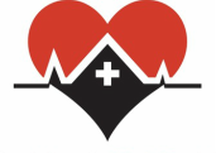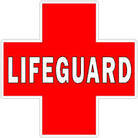DO YOU WANT TO BE A LIFEGUARD?Have you thought about being a lifeguard or interested in a summer job working as a lifeguard?
The role of the lifeguard is extremely important as they can truly make a difference. The U.S. Lifesaving Association (USLA) has indicated that the chance that a person will drown while attending a beach protected by a USLA-affiliated lifeguard is 1 in 18 million – or less than 1%. On the contrary, the International Life Saving Federation has stated that approximately 1.2 million people, or more than two people every minute, will die annually due to drowning. These statistics highlight the importance of lifeguards in helping drowning victims and delivering emergency assistance. While becoming a lifeguard does have a great deal of responsibility, it is also exciting and rewarding to become part of a team whose job is to allow people to have fun and enjoy their time in the water in a safe fashion. With that in mind, let's examine three things that prospective lifeguards to become aware of before they actually become lifeguards. 1. Lifeguards Require Extensive Training. The American Red Cross provides many lifeguard training classes that teach you how to recognize and prevent injuries, rescue skills that are necessary both in water and on land and life-saving first aid and cardiopulmonary resuscitation (CPR) training. Additionally, the Red Cross requires individuals to be at least 15 years old before enrolling in a lifeguard class. The Red Cross also mandates that individuals pass a pre-course swimming skills test prior to signing up for a lifeguard class. If you intend to become a lifeguard, enroll in the best training available. That way, you can gain the real-world skills that you’ll need to administer critical assistance in emergencies. 2. Lifeguards must be ready to handle a wide range of emergencies. Lifeguards must be capable of providing support in many types of emergencies, including the following:
3. Being a Lifeguard, everyday is different. When a lifeguard is on duty, many various things can occur occurring a medical crisis or emergency that requires basic level or advanced medical care. As a lifeguard, it is important to constantly search for ways to always improve and ensure time devoted to maintaining his or her training certifications. Not only does this allow the lifeguard to be consistent with the latest lifesaving techniques, but also exposes the individual to extensive expertise in administering life-saving techniques. Training programs are available that allow lifeguards to become certified in a number of areas, including:
Comments
|
AuthorDr. Tracy A. Jones is the CEO of Help-A-Heart CPR, LLC and an American Heart Association, ASHI, and American Red Cross Master Program Trainer, Instructor, & AHA Faculty Member located in San Antonio, Texas. Archives
June 2024
Categories |
Help-A-Heart CPR, LLC | 1747 Citadell Plaza Suite 101 | San Antonio, Texas 78209 | (210) 380-5344 | [email protected]
Copyright © Help-A-Heart CPR, LLC 2024
100% Certification Acceptance
We promise your employer, school, or agency will accept the certification card we issue to you. If there is a question of acceptance or validity, simply send us an email at [email protected] with full details. We will reach out to the individual/entity and provide accreditation information. If still there’s a question, we will provide you with a full refund of your class fee. It’s that simple.
We promise your employer, school, or agency will accept the certification card we issue to you. If there is a question of acceptance or validity, simply send us an email at [email protected] with full details. We will reach out to the individual/entity and provide accreditation information. If still there’s a question, we will provide you with a full refund of your class fee. It’s that simple.
|
Communities Served
ALABAMA: Birmingham
ARKANSAS: Fayetteville, Hot Springs, Jonesboro, Little Rock NEW MEXICO: Albuquerque TENNESSEE: Knoxville TEXAS: Amarillo, Arlington, Austin, Bandera, Bastrop, Boerne, Brownsville, Comfort, Converse, Corpus Christi, Dallas/Ft. Worth, Del Rio, Dripping Springs, El Paso, Floresville, Fredericksburg, Georgetown, Harlingen, Houston, Junction, Katy, Kerrville, Kingsville, Kingwood, Laredo, Lubbock, Lufkin, McAllen, Midland, New Braunfels, Odessa, Pleasanton, Round Rock, San Angelo, San Marcos, Schertz, Seguin, Taylor, Temple, Texarkana, Tyler, Universal City, Victoria, Waco, The Woodlands |
Why Choose Help-A-Heart CPR?
1. Flexible Scheduling
2. On and Off Location Training Available 3. Casual, Fun Atmosphere 4. Best Price Guarantee 5. All Instructors are AHA and/or ARC certified 6. 5 Star Google Reviews 7. Blended Learning (Online & Skills Check) Available 8. Meets OSHA & College CPR Requirements 9. Get Certified Within 3-4 Hours 10.Certification Is Good For Two Years 11. Official AHA/ARC/ASHI Training Site 12. High Quality Safety Training! |








